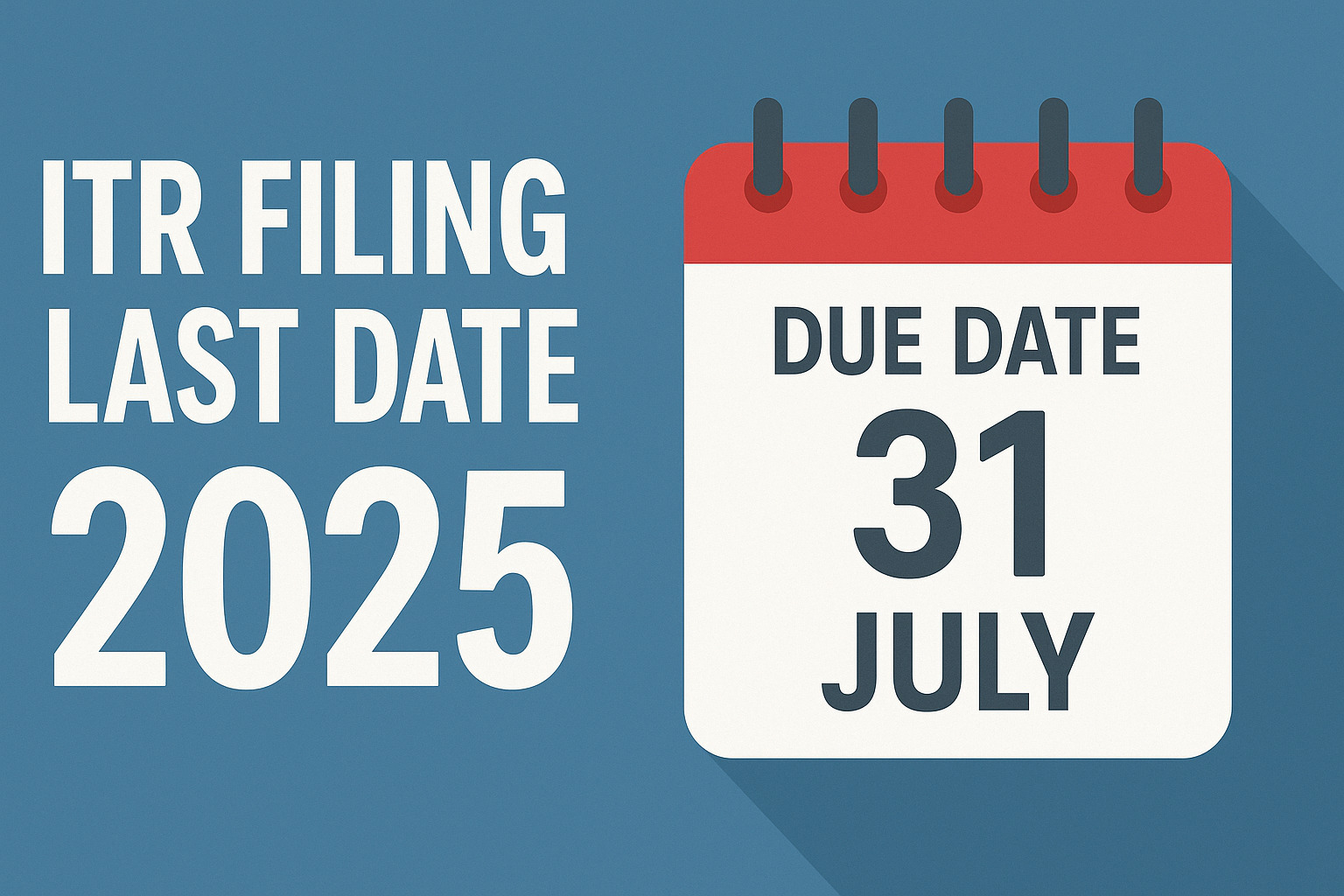Good News for Taxpayers – ITR Filing Last Date 2025 Extended

ITR Filing Last Date 2025: Everything You Need to Know
When it comes to tax filing in India, knowing the ITR filing last date 2025 is crucial. The Income Tax Return (ITR) filing is a legal requirement for individuals and businesses who meet specific income criteria. Filing your ITR on time ensures compliance, helps avoid penalties, and even offers some benefits such as tax refunds and loans. This blog post covers everything you need to know about the ITR filing last date 2025, including the steps, documents required, and the consequences of missing the deadline.
What is ITR?
Before diving into the last date, let’s briefly touch upon what ITR is. ITR, or Income Tax Return, is a form that individuals and businesses file with the Income Tax Department of India to report their income, expenses, tax payments, and other relevant details. It is mandatory for those whose income exceeds the basic exemption limit. Filing your return correctly not only ensures you stay on the right side of the law but also helps you in claiming refunds and carry forward losses.
ITR Filing Last Date 2025
The ITR filing last date 2025 is an important date for every taxpayer. For the financial year 2024-25, the last date for filing the ITR for individual taxpayers is typically 31st July 2025. However, for companies and other taxpayers under specific categories, the deadline might differ. Let’s break it down:
- For individuals: July 31, 2025
- For businesses and firms: September 30, 2025
- For taxpayers who need to audit their accounts: September 30, 2025
If you miss the deadline, you may have to pay a penalty, and in some cases, you may lose out on the opportunity to carry forward certain losses.
Key Points to Remember:
- If you fail to file your return on time, you may face a penalty of up to Rs. 5,000.
- For delayed filings, the refund process may also be delayed.
- Filing beyond the last date without a valid reason could result in prosecution.
Why Should You File Your ITR On Time?
Filing your ITR on time has numerous advantages:
- Avoid Penalties: Missing the deadline could lead to late fees and penalties.
- Claim Tax Refunds: If you’ve paid excess tax, you’ll get your refund only after filing your ITR.
- Loan Applications: A filed ITR is essential when applying for loans, and many financial institutions require a recent return as proof of income.
- Carry Forward Losses: If you incur losses, timely filing allows you to carry forward the losses to the next financial year.
Documents Needed for ITR Filing
Before heading to the ITR portal, ensure you have the following documents ready:
- PAN Card: Permanent Account Number (PAN) is necessary for tax filing.
- Aadhaar Card: Your Aadhaar number is also mandatory for ITR filing.
- Form 16: If you are salaried, this form shows the income you earned and the tax deducted at source (TDS).
- Bank Statements: To show interest income and any other deposits made during the financial year.
- Investment Proofs: If you have made any investments eligible for tax deductions (e.g., PPF, NPS, or ELSS), keep the proof handy.
- Other Income Proof: If you have rental income, business income, or any other form of income, make sure you have the supporting documents for these as well.
Steps to File Your ITR
Here’s how you can file your ITR smoothly:
- Login to the Income Tax Portal: Visit the Income Tax e-Filing Portal.
- Select the Correct ITR Form: Depending on your income type, select the relevant ITR form.
- Fill in the Details: Enter the required personal and income details. Cross-check with your Form 16 and bank statements.
- Verify and Submit: After filling in the details, verify your information and submit your return.
- E-Verify: Use options like Aadhaar OTP, Net Banking, or DSC for e-verification to complete your filing.
For more detailed instructions, check out Investsnow, where you can find useful tips on filing your ITR and tax-saving strategies.
Consequences of Missing the ITR Filing Deadline
If you miss the ITR filing last date 2025, you may face several consequences:
- Penalty Charges: A late fee can be imposed, which could range from Rs. 1,000 to Rs. 5,000 depending on when you file.
- Interest on Due Taxes: If there’s any outstanding tax to be paid, interest will be charged for late payment.
- Delayed Refunds: Your tax refunds could be delayed.
- Loss of Benefits: Certain benefits, such as carrying forward losses, may not be available after the deadline.
Frequently Asked Questions (FAQ) About ITR Filing Last Date 2025
1. Kab hai ITR filing ka last date?
ITR filing ka last date generally 31st July hota hai, lekin agar aapko audit karani hai ya kisi business ke liye file kar rahe hain toh yeh date badal sakti hai. Isliye, apne applicable date ko dhyan se check karein.
2. Agar ITR last date miss kar diya toh kya hoga?
Agar aap ITR file nahi karte hai, toh aapko penalty dena pad sakta hai, aur aapka tax refund bhi delayed ho sakta hai.
3. ITR file karne ke liye kaunse documents chahiye hote hain?
Aapko PAN card, Aadhaar card, Form 16, bank statements, investment proofs, aur other income related documents chahiye hote hain.
4. Main apna ITR kaise file kar sakta hoon?
Aap Income Tax Portal par jaake apna ITR file kar sakte hain. Form select karke, apni details bharni hoti hai aur verify karna padta hai.
Get Help with Loans Using ITR
Filing your ITR on time also plays a key role in securing loans. Many lenders require your ITR as proof of income when evaluating your loan application. Whether it’s for a personal loan or a home loan, a timely filed ITR can boost your chances of approval. For easy access to loan services, visit Gromo Loans.
Conclusion
To sum it up, ITR filing last date 2025 is crucial for every taxpayer. Mark the date, gather your documents, and make sure you file your taxes on time to avoid penalties and reap the benefits of timely compliance. Don’t forget to consult resources like Investsnow for expert tax-related advice.
Ensure that you are prepared and don’t miss out on important deadlines. Happy filing!
Internal Links:
Explore Tax Savings and Investment Options


